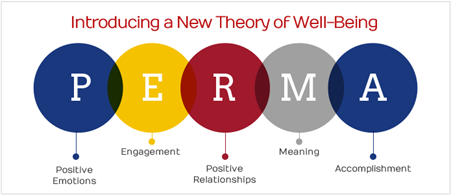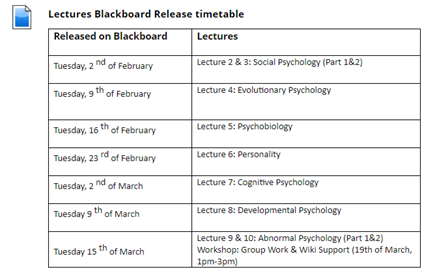Frederika Roberts, our keynote speaker at the mini-conference on Embedding Well-being in the Curriculum concluded her presentation by asking ‘Can Aberystwyth University become a Positive University?’ (to watch Frederika’s talk please visit the mini-conference website).
The idea of a positive university is one that focuses on ‘the development of educational environments that enable the learner to engage in established curricula in addition to knowledge and skills to develop their own and others’ wellbeing’ (Oades, Robinson, Green, & Spence, 2011). This definition has been proposed by the authors of Towards a positive university article published in 2011 which includes a useful framework for building Positive Universities based on the PERMA model (Seligman, 2011). Seligman’s PERMA is among the most well-known well-being theories which distinguish five key aspects of well-being:

Source: https://www.authentichappiness.sas.upenn.edu/learn
Although much progress has been done on embedding well-being in the curriculum, not many institutions, especially in the higher education sector, implemented a whole-institutional approach to well-being (Oades et al., 2011). The first Positive University in the world was Tecmilenio University, a private institution in Mexico, established in 2002. Following their lead, in 2017, the University of Buckingham became the first Positive University in Europe.
What would have to change for Aberystwyth University to become a Positive University?
The Positive University status is achieved by implementing the well-being in institutional policies and procedures, but also through an individual commitment to the values of positive education. Although Oades and colleagues (2011) mention the importance of senior leadership, they also offer a range of simple activities that are consistent with the ethos of positive education and that could be implemented by teaching and professional staff as well as students (see Table 1. p. 434). Following the recent mini-conference, we would like to call all staff to take an active stand towards their well-being and the well-being of their students and colleagues.
To find examples of how you can embed well-being in your teaching please refer to the Towards a positive university article, recordings from the conference as well as the Wellbeing in the curriculum factsheet created by Samantha Glennie, the Student Wellbeing Service Manager. We would also like to encourage you to share the following resources with your students:














